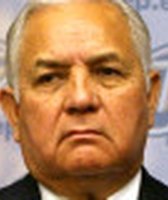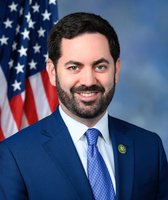Stand up for the facts!
Our only agenda is to publish the truth so you can be an informed participant in democracy.
We need your help.
I would like to contribute
Becky Moeller says local Texas chambers of commerce "were granted sweetheart exemptions from paying all property taxes on their expensive headquarters properties"
The president of the Texas AFL-CIO roundly objects to subjecting recipients of unemployment aid to drug tests.
In a Feb. 17, 2012, press release, Becky Moeller said "some politicians and interest groups want to attack the unemployment system by subjecting workers who lost their jobs through no fault of their own to insulting and costly drug tests." The release says Moeller was reacting to praise of Congress by Bill Hammond, president of the Texas Association of Business, for including in its extension of unemployment benefits a provision giving states the right to require drug tests of recipients seeking a job that generally requires a drug test, as CNN reported Feb. 17, 2012..
.
Moeller said: "We continue to wait for legislative proposals to require CEOs who accept corporate welfare and promise jobs that they often don’t deliver to take drug tests. Come to think of it, we’re still waiting for heads of local Chambers of Commerce in Texas who were granted sweetheart exemptions from paying all property taxes on their expensive headquarters properties to take drug tests to prove they are ‘ready and available’ to use taxpayer money."
Wham, bam, blooey, and at a glance, nothing but opinion.
But we focused on a clearly factual claim -- that local chambers of commerce got exemptions from paying property taxes on their headquarter properties. Setting aside her juicy adjectives as opinion -- "sweetheart" and "expensive" -- were local chambers granted exemptions from property taxes?
They were, though we were unable to pin how many chambers have taken advantage and to what cost.
The Greater Austin Area Chamber of Commerce, which in late 2011 confirmed plans to move from leased space to purchased space in downtown Austin, has applied for an exemption that could save the group about $100,000 in 2012 property taxes, a figure based on taxes levied on the property for 2011, the chamber’s president, Mike Rollins, told us in a telephone interview.
Rollins said the Austin chamber did not seek the exemption law but appreciates the result. "Chambers do a lot of work that if they didn’t do it, the public would have to pay for it out of their ad valorem (property) taxes," he said, offering as an example the preparation and distribution of promotional information about the surrounding community.
Rollins added that the Austin chamber has taken no position on the drug-testing law singled out in Moeller’s statement and, he suggested, it’s unfair to insinuate that any local chambers are aligned with the TAB leader’s salute to the law.
So, how did the tax exemptions come to be?
AFL-CIO spokesman Ed Sills, responding to our request for backup information, said the exemptions were authorized by the 2009 Legislature in an amendment to a measure covering other topics.
According to legislative records, on May 27, 2009, state Sen. Mike Jackson, R-La Porte, put the exemption provision into House Bill 770, which as originated by Rep. Donna Howard, D-Austin, had to do with property taxes on a homestead residence rendered uninhabitable by water or mold damage.
Jackson also was named chairman of the Senate side of the joint conference committee that reached a compromise version of HB 770. The measure then cleared the Senate with only Sen. Steve Ogden, R-Bryan, voting "no" and won House approval 144-0. Gov. Rick Perry let the proposal become law without his signature.
The relevant provision, added to the Texas Tax Code, says that to qualify for the property-tax exemption, a nonprofit economic development group largely funded by dues-paying members must primarily be engaged in one or more of these activities: promoting the common economic interests of commercial enterprises; improving the business conditions of one or more types of business; or otherwise providing services to aid in economic development. It says too the group may not have a political action committee.
Legislators embraced the provision in the face of a fiscal note stating: ""The bill's requirement for mandatory exemptions for qualifying economic development corporation property would create a cost to cities, counties, school districts and the state through the operation of the school finance formulas."
Specifically, the note says, the change would reduce state revenue by nearly $1.2 million in the fiscal year ending Aug. 31, 2011, with the annual reduction increasing to nearly $1.8 million for the year ending Aug. 31, 2014. There’s a state cost, the note says, partly because state law requires the state to ensure that school districts maintain the revenue levels they had in 2006. According to the fiscal note, local cities, counties and school districts would see their combined related revenue drop less than the state’s annual decreases.
We were unable to obtain updated cost projections taking into account actions by the 2011 Legislature changing how the school funding formulas affect state spending.
In a telephone interview, Jackson told us he sought the exemption provision at the behest of a local chamber leader and after learning that about 25 percent of 500 local chambers in the state then owned their headquarters. A Sept. 2, 2010, Houston Chronicle news article credits the executive director of the Texas City-La Marque Chamber of Commerce with leading the statewide push to authorize the property-tax exemption.
Per Moeller’s statement, Jackson said he did not want to give anyone a sweetheart deal but thought that business owners who compose the membership of local chambers already paid property taxes on their properties. Charging property taxes on the chamber HQs, he said, was like double taxation. Also, Jackson said, most chamber headquarters he has seen are "not big Taj Mahals."
"The AFL-CIO ought to be all in favor of this," Jackson opined. "This allows these chambers to use that money to help economic development and create more jobs. That would just do more to help labor in general."
A House version of the chamber-sought change, House Bill 831, drew favorable testimony from leaders of six local chambers of commerce including individuals from Kerrville, Brownsville, Lewisville and La Marque, according to the Texas Legislative Council, with representatives of a dozen additional local chambers registering in favor.
Legislative records show no one testifying against the tax exemption provision.
Sills, of the Texas AFL-CIO, said in a telephone interview that behind the scenes the labor group fought the change. He forwarded an email that he said was sent during the session to House members urging opposition to HB 831.
The 2009 email says chambers of commerce lobby on many issues, sometimes against the interests of a majority of residents. "If the Legislature wants to allow the public to start subsidizing non-profit organizations that engage in the political process," the email says, "then alternatively we ask you to adopt an amendment that would include labor union organizations in that subsidy. We don’t think it would be great public policy, but it would create a more level playing field. It would be preferable, though, to oppose" the exemption proposal. "We believe that taxpayers do not want to subsidize chambers of commerce and other politicized organizations through tax subsidies."
We rate Moeller’s statement True.
Featured Fact-check
Our Sources
Texas AFL-CIO, press release, "Starting Place on UI Benefits Is Dignity for Workers," Feb. 17, 2012
Email and telephone interview, Ed Sills, director of communications, Texas AFL-CIO, Austin, Feb. 21 and 27, 2012
Telephone interview, Donna Howard, Feb. 27, 2012
Telephone interview, Mike Jackson, Feb. 29, 2012
Telephone interview, Mike Rollins, president, Greater Austin Area Chamber of Commerce, Feb. 29, 2012
Browse the Truth-O-Meter
More by W. Gardner Selby
Becky Moeller says local Texas chambers of commerce "were granted sweetheart exemptions from paying all property taxes on their expensive headquarters properties"
Support independent fact-checking.
Become a member!
In a world of wild talk and fake news, help us stand up for the facts.



















































